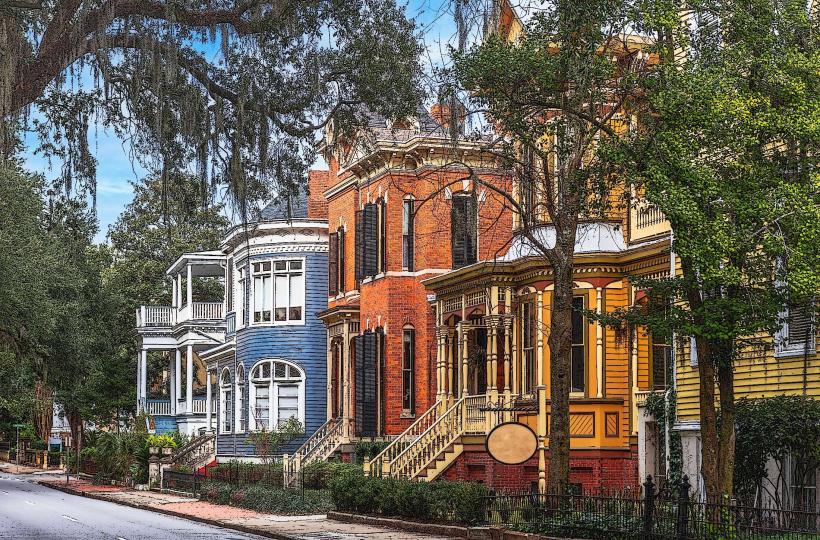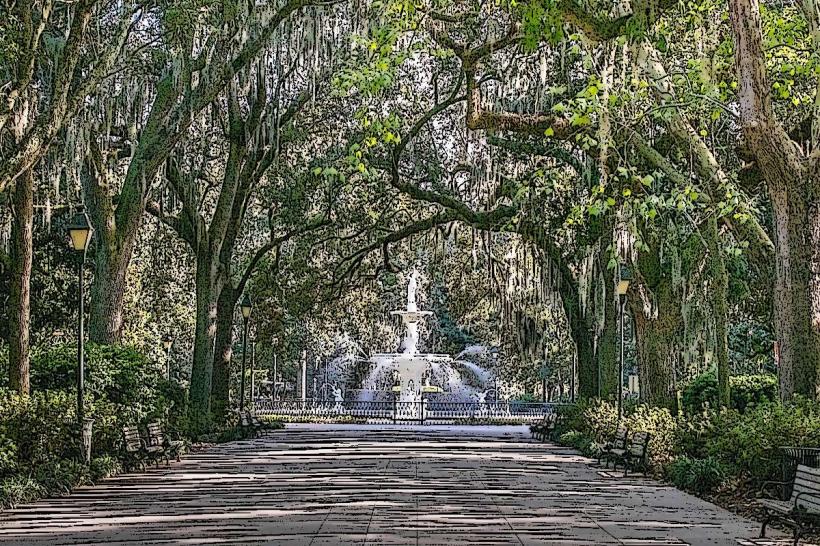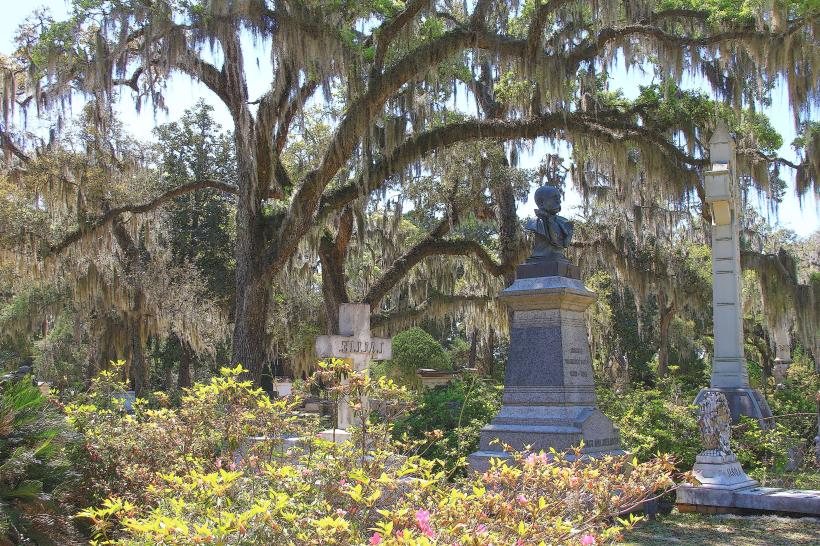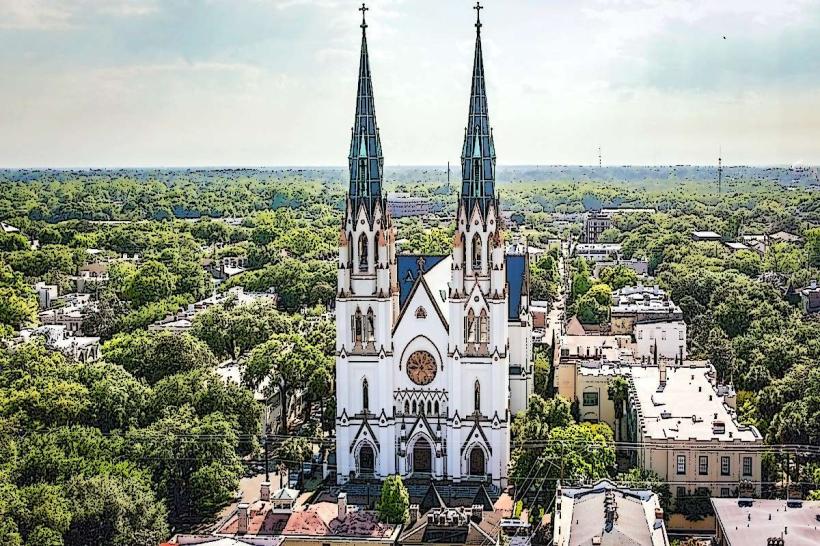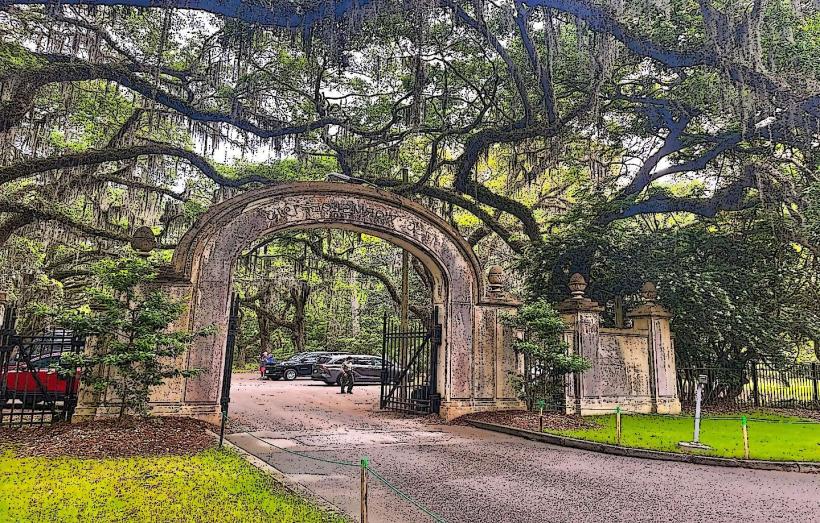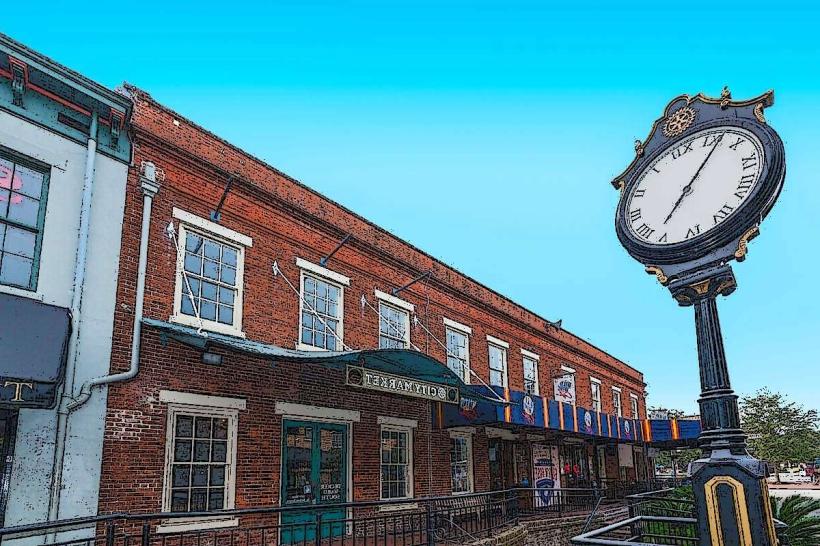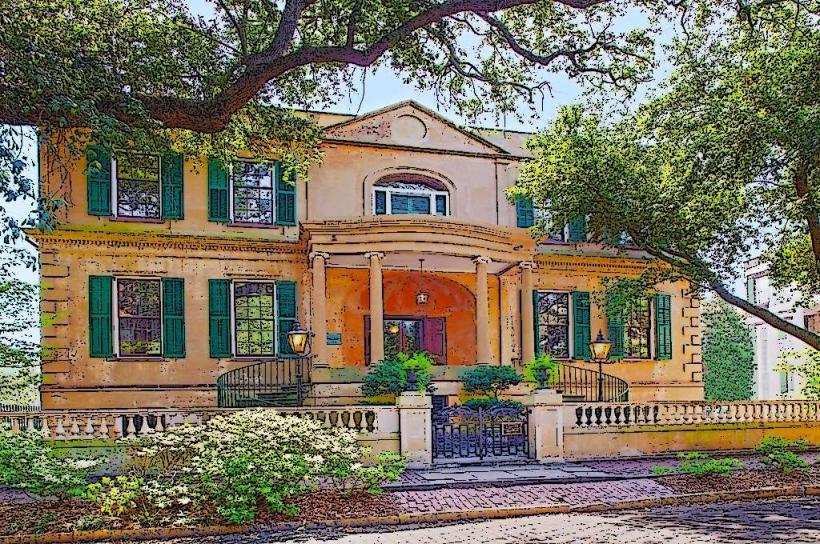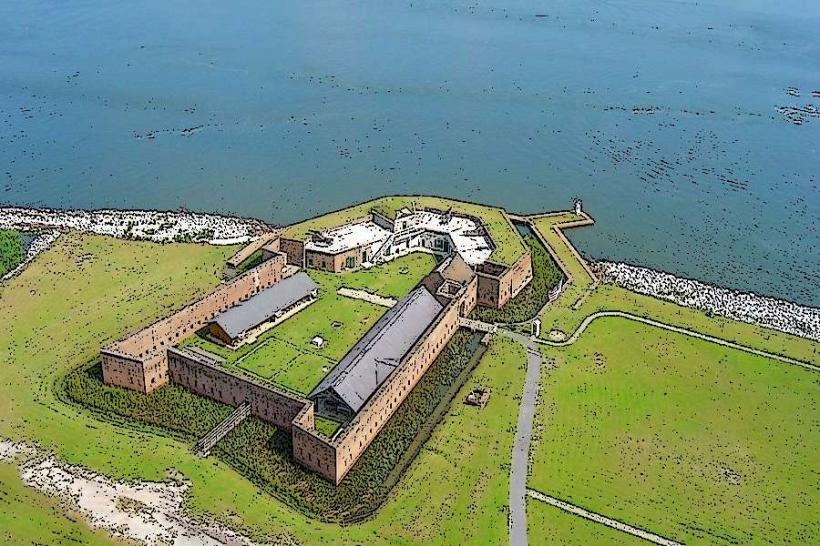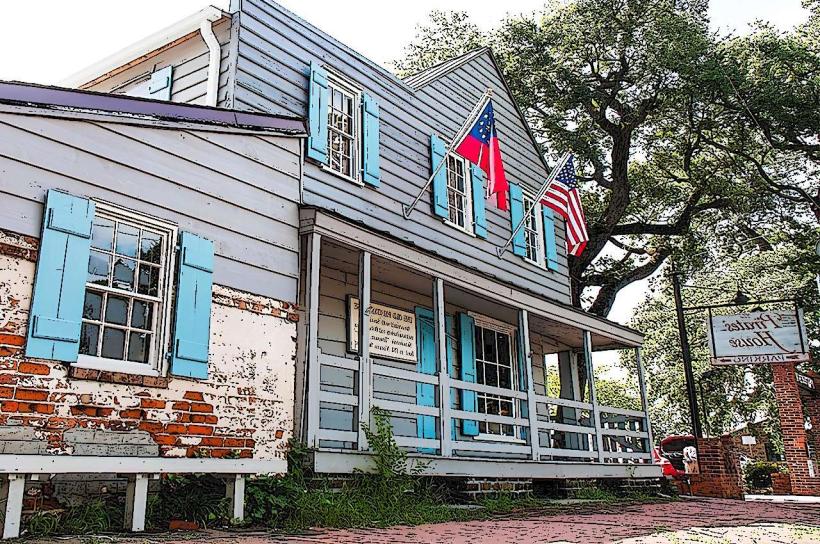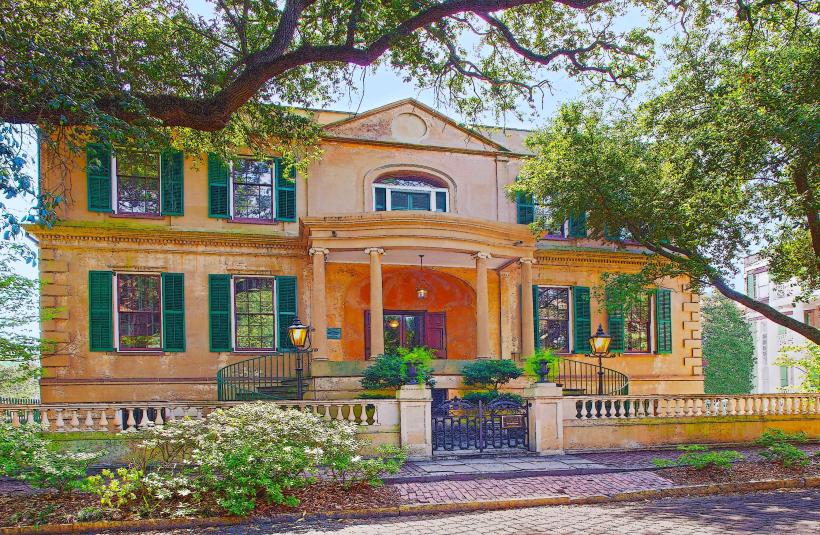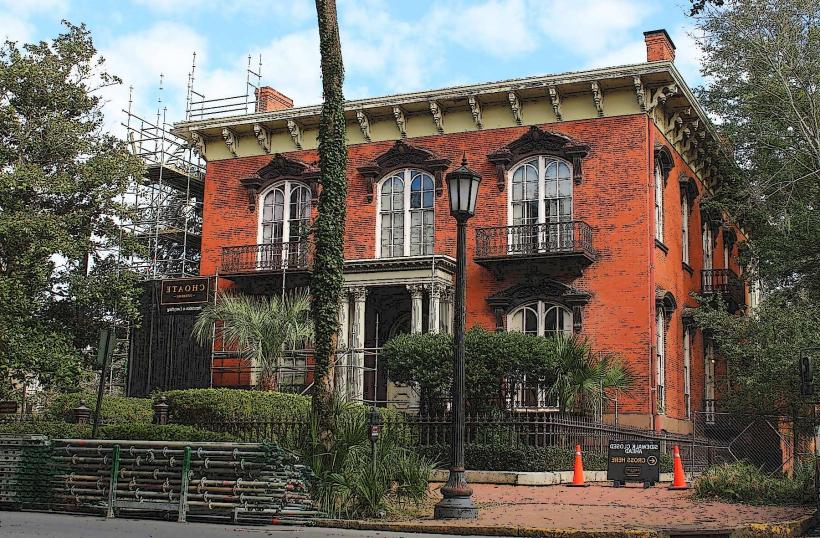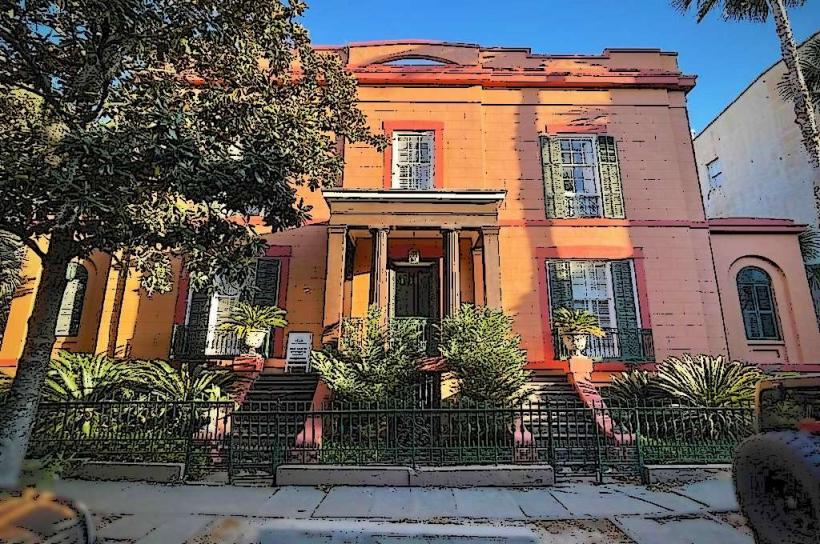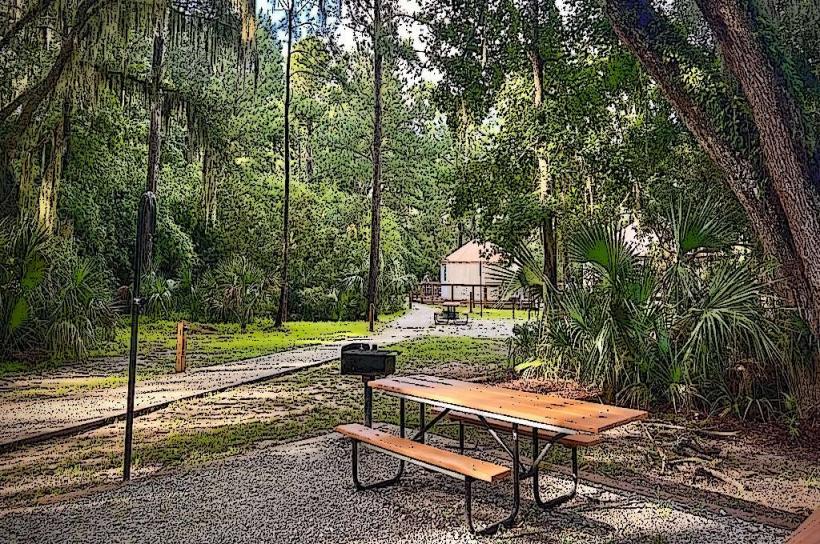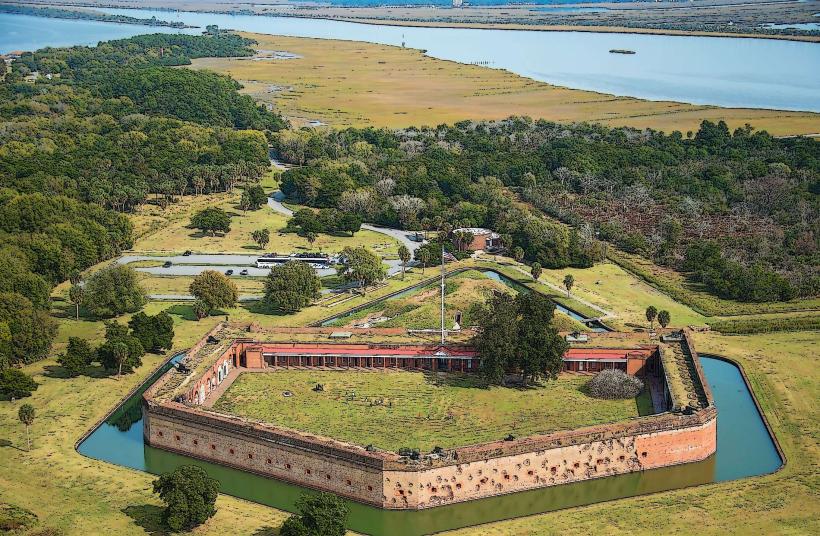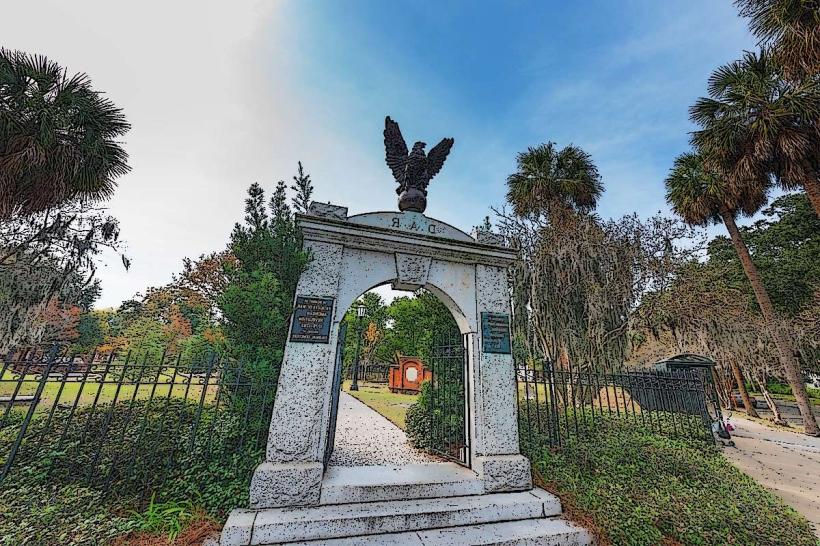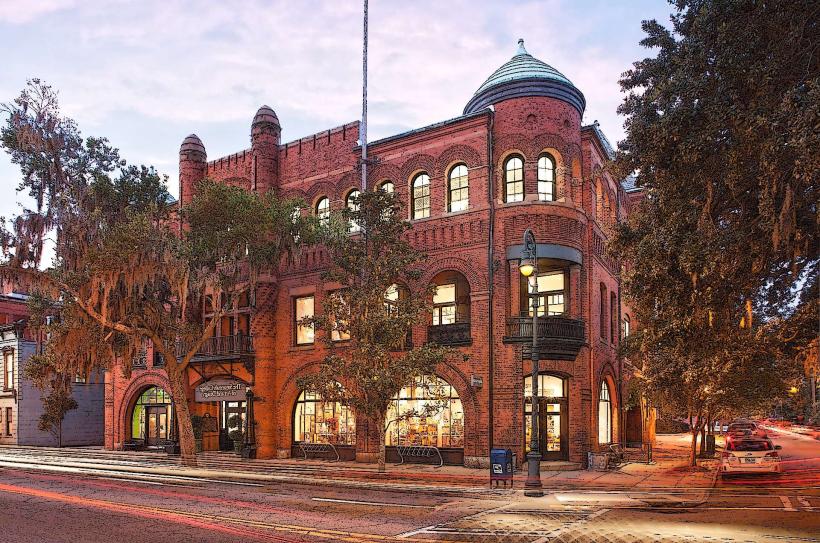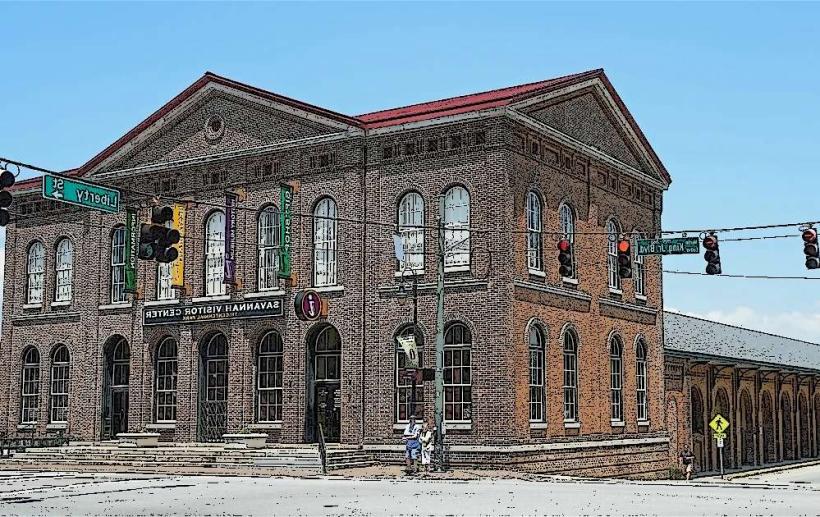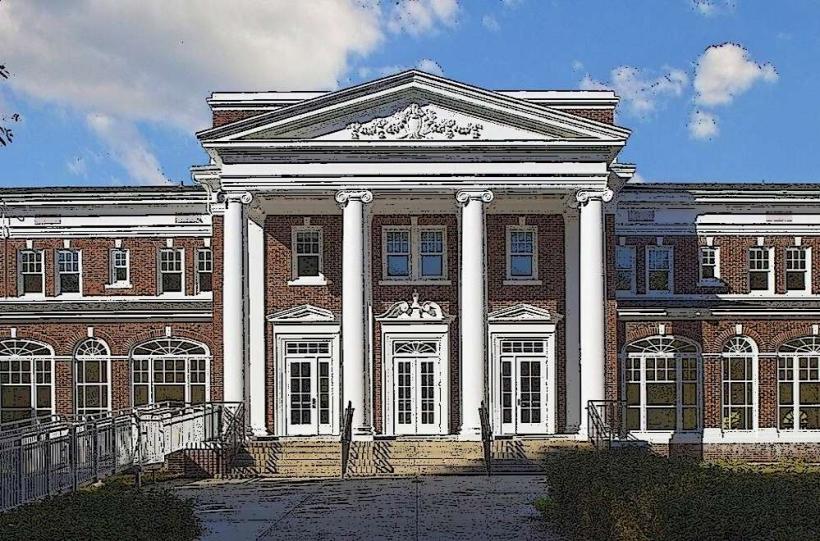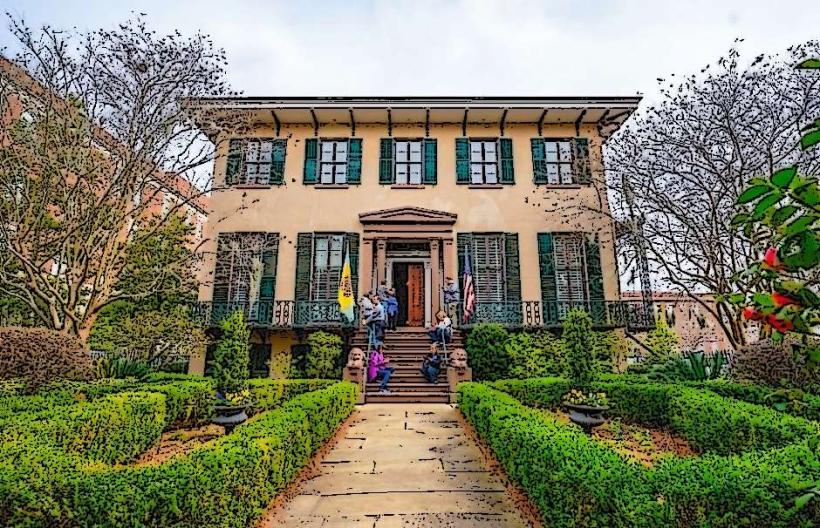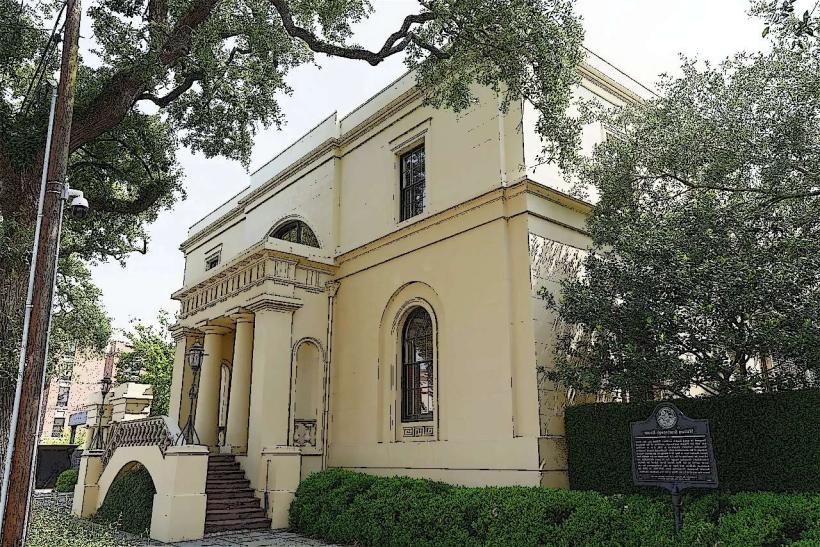Information
Landmark: Juliette Gordon Low BirthplaceCity: Savannah
Country: USA Georgia
Continent: North America
Juliette Gordon Low Birthplace, Savannah, USA Georgia, North America
The Juliette Gordon Low Birthplace is a historic house museum located in Savannah, Georgia, USA.
This property preserves the birthplace and childhood home of Juliette Gordon Low, the founder of the Girl Scouts of the USA.
Visual Characteristics
The house is a Federal-style brick structure, three stories in height, with a low-pitched hip roof. It features a prominent central portico with four Doric columns supporting a pediment. The exterior walls are constructed of red brick, with white trim around the windows and cornices. The windows are typically sash windows with multi-pane glazing. A wrought-iron fence encloses the front yard.
Location & Access Logistics
The Juliette Gordon Low Birthplace is situated at 10 East Oglethorpe Avenue, Savannah, Georgia. It is located in the historic district, approximately 0.5km west of the Savannah Riverfront. Parking is available in nearby public parking garages, such as the Whitaker Street Garage (0.3km East) and the Bryan Street Garage (0.6km Northeast). Public transport options include the Chatham Area Transit (CAT) bus system; Route 14 stops at Bull Street and Oglethorpe Avenue, a 0.2km walk from the house.
Historical & Ecological Origin
The house was constructed between 1819 and 1821. It was designed by William Jay, an English architect, for James Moore Wayne, a prominent Savannah lawyer and later Associate Justice of the U.S. Supreme Court. Juliette Gordon Low was born in the house in 1860. The property was acquired by the Girl Scouts of the USA in 1953 and opened as a museum in 1957.
Key Highlights & Activities
Guided tours of the house are offered daily, detailing the life of Juliette Gordon Low and the history of the building. Visitors can view period furnishings and artifacts. The grounds include a garden area accessible to visitors.
Infrastructure & Amenities
Restrooms are available on-site for visitors. Limited shaded areas are present in the garden. Cell phone signal (4G/5G) is generally good within the house and surrounding grounds. Food vendors and restaurants are located within a 0.5km radius in the historic district.
Best Time to Visit
For optimal interior lighting and fewer crowds, visiting during weekday mornings, between 10:00 AM and 12:00 PM, is recommended. The months of March through May and September through November offer mild weather conditions suitable for exploring the grounds.
Facts & Legends
A notable historical detail is that Juliette Gordon Low's father, William Washington Gordon, was a Confederate officer during the Civil War. The house has undergone several restorations to preserve its original architectural integrity and historical significance.
Nearby Landmarks
- Cathedral of St. John the Baptist (0.4km Southwest)
- Forsyth Park (1.2km South)
- City Market (0.7km Northeast)
- Telfair Academy (0.3km West)
- Owens-Thomas House & Slave Quarters (0.6km West)

